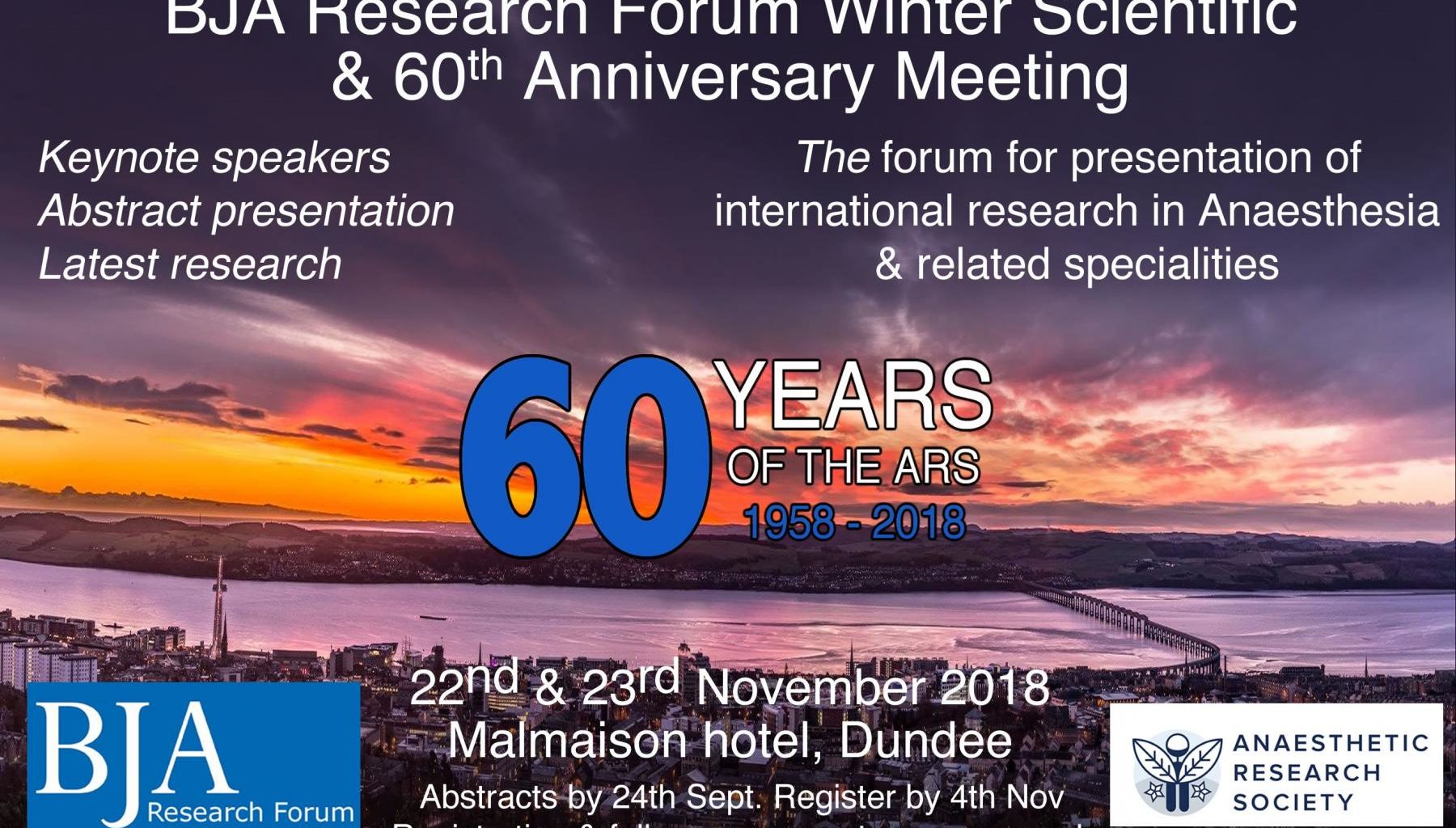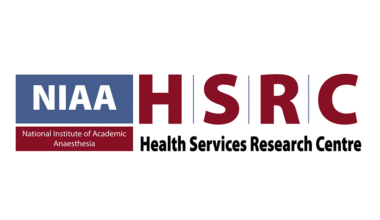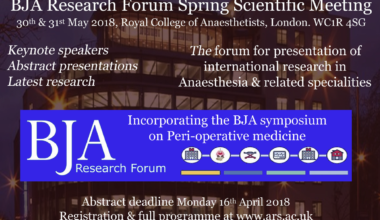The Meeting
The Anaesthetic Research Society (ARS) has over 700 members and is run by the Council which comprises eleven elected members including the President, the Honorary Secretary and the Honorary Treasurer.
The ARS meetings welcome both members and non-members, sponsored by an existing member, to present oral (8 minutes duration) or poster communications describing original, unpublished research in anaesthesia or related disciplines. Presenters range from undergraduate and postgraduate students in medicine or biomedical sciences, to SpR anaesthetic trainees, consultants and academic scientists. There are two meetings per year (Summer and Winter) each over 2 days, which offer 8-10 CPD points for attendance. Everyone is welcome and these meetings provide the presenters with a friendly and interested audience capable of providing constructive feedback.
In Spring 2015 the ARS announced a partnership with the British Journal of Anaesthesia to jointly run high quality scientific meetings with a focus on current research from anaesthesia and its related disciplines. BJA Research Forum meetings will take place twice a year, one in London in the Spring and one in the Autumn. Meetings will have both themed and open abstract submissions, high profile plenary lecturers and a BJA writing and publication workshop.
Abstract Submission
The Anaesthetic Research Society invites abstract submissions for the British Journal of Anaesthesia Research Forum. Most meetings will have a themed call, but abstracts are invited for all meetings that cover the following topics:
- Anaesthesia and its related disciplines (namely critical care, peri-operative medicine & pain medicine) and its subspecialties
- Clinical and laboratory research
- Robust Quality Improvement projects
Submissions are welcome from clinicians and academics, and from consultants, trainees and medical students. Submissions from trainee networks are welcomed and encouraged. Clinical Scientists and Allied Healthcare Professionals are also welcome to submit abstracts.
You do not need to be a member of the ARS to submit an abstract, but you are welcome to join and meeting fees have a members’ discount.
By submitting an abstract, at least one of the authors is agreeing to register and to attend the meeting in order to present the abstract, if selected.
Abstracts are screened against the following criteria by the reviewers:
- Meets the submission guidelines
- High quality scientific work
- Clinical relevance of the work
- Appropriate methodology and use of statistics where appropriate
- Appropriate and justified conclusions
- Overall quality of written submission (clear and succinct language, appropriate use of figures and tables and appropriate limited references)
- Priority is given to abstracts that are aligned to advertised meeting themes
The authors of selected abstracts are invited to attend the meeting (for which you will need to register) and present your work to the ARS Council and audience. Guidelines for the presentation are detailed below.
Successfully presented abstracts are eligible for publication in the British Journal of Anaesthesia. Abstract publication does not prejudice subsequent publication of a complete manuscript in a scientific journal, but the authors have a responsibility notify the target journal of the abstract presentation and publication.





